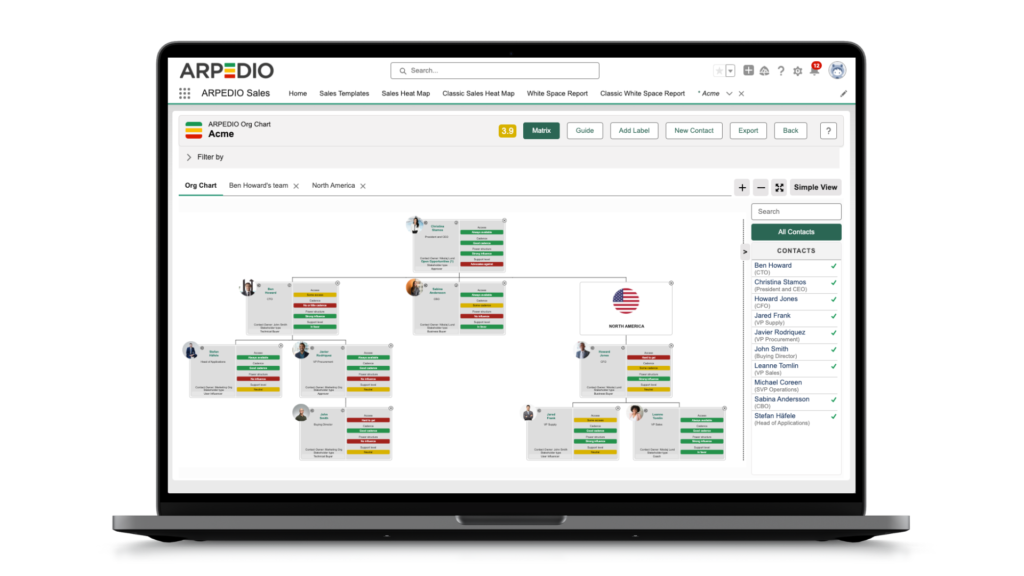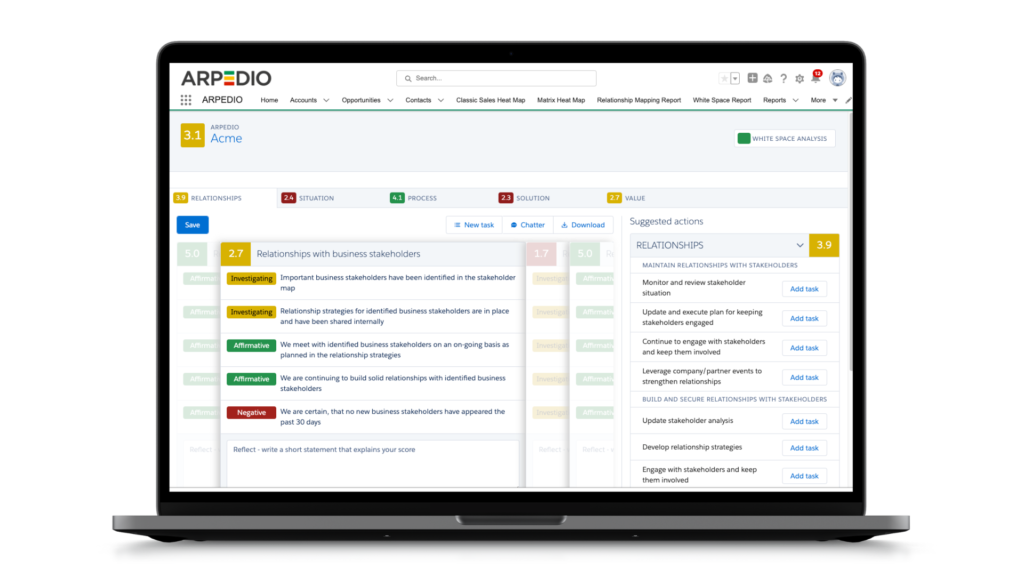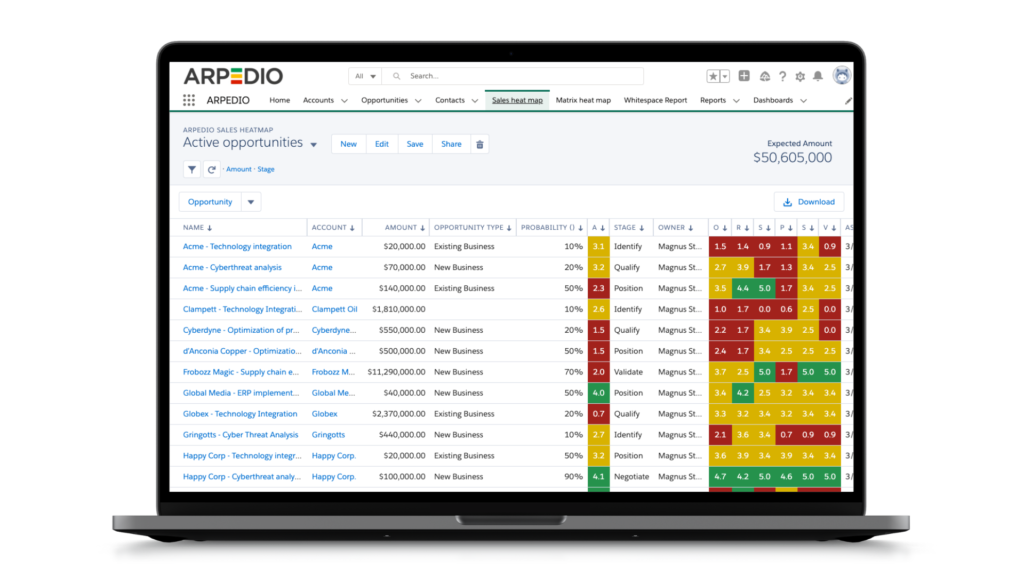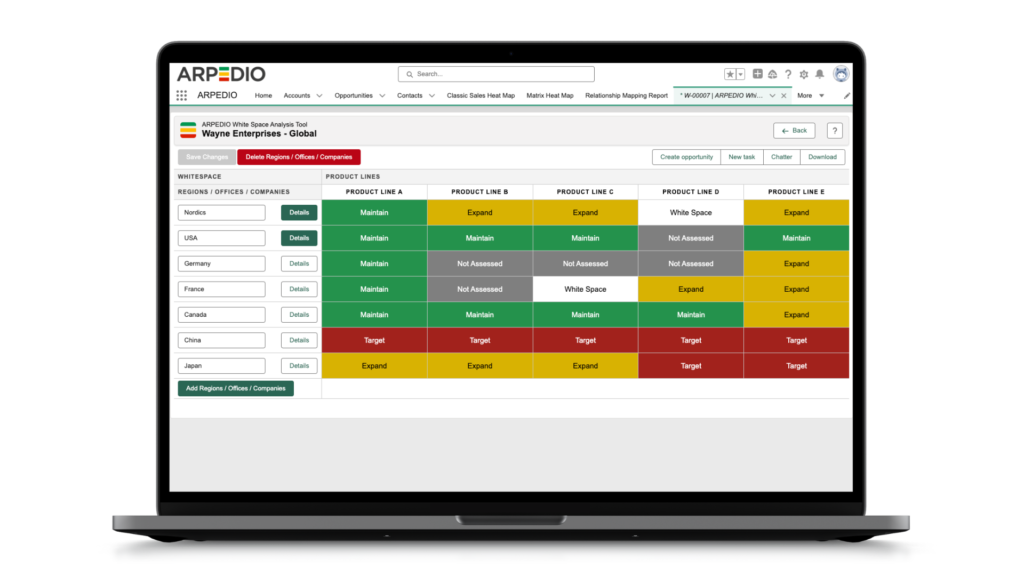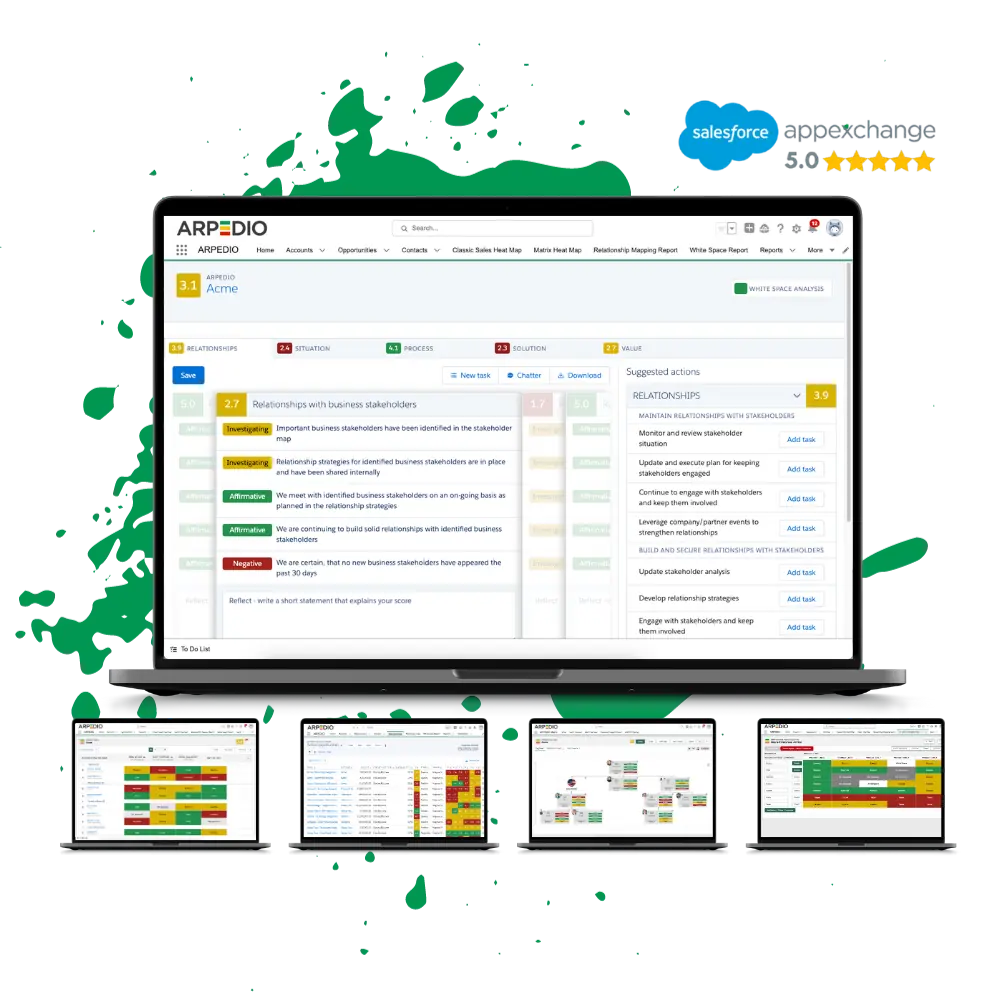What is Revenue Intelligence?
Revenue intelligence is a multifaceted approach to leveraging data and insights to optimize revenue generation and business growth. At its core, revenue intelligence involves the systematic gathering, analysis, and interpretation of various data points related to sales, customer interactions, market trends, and competitor activities. Unlike traditional business intelligence, which often focuses solely on historical data and reporting, revenue intelligence places a stronger emphasis on real-time insights and actionable strategies aimed at driving revenue growth and maximizing profitability.
Components of Revenue Intelligence
- Data Collection and Analysis
Central to revenue intelligence is the process of collecting and analyzing vast amounts of data from various sources, including sales transactions, customer interactions, website traffic, social media engagement, and more. This data is then analyzed using advanced analytics techniques to extract meaningful insights and identify patterns that can inform strategic decision-making.
- Market Insights
Understanding market dynamics and trends is essential for businesses looking to stay ahead of the competition and capitalize on emerging opportunities. Revenue intelligence involves monitoring market trends, identifying key market segments, and assessing competitive landscapes to inform pricing strategies, product positioning, and market entry decisions.
- Customer Behavior Analysis
A deep understanding of customer behavior is critical for businesses seeking to deliver personalized experiences and build long-term customer relationships. Revenue intelligence encompasses the analysis of customer interactions, preferences, and purchasing patterns to identify cross-selling and upselling opportunities, improve customer retention, and enhance overall satisfaction.
- Competitive Analysis
In today’s competitive business environment, staying informed about competitors’ strategies, strengths, and weaknesses is vital for maintaining a competitive edge. Revenue intelligence involves conducting thorough competitive analysis, which includes monitoring competitors’ pricing strategies, product offerings, marketing campaigns, and customer feedback to identify areas for differentiation and strategic advantage.
How Revenue Intelligence Differs from Traditional Business Intelligence
While traditional business intelligence focuses primarily on historical data and retrospective analysis, revenue intelligence takes a more proactive and forward-thinking approach to data analysis and decision-making. Unlike traditional BI, which often provides static reports and dashboards, revenue intelligence leverages real-time data and advanced analytics techniques to deliver actionable insights that drive immediate business impact. Additionally, revenue intelligence places a stronger emphasis on revenue optimization, customer-centricity, and strategic agility, enabling businesses to adapt quickly to changing market conditions and emerging opportunities.
Importance of Revenue Intelligence in Business Strategy
In today’s fast-paced and dynamic business environment, the ability to adapt and respond quickly to market changes is paramount. Revenue intelligence plays a crucial role in shaping strategic initiatives by providing businesses with actionable insights into customer preferences, market trends, and competitive landscapes. By leveraging revenue intelligence, organizations can optimize pricing strategies, identify upselling opportunities, enhance customer experiences, and ultimately drive sustainable revenue growth. In essence, revenue intelligence isn’t just a tool—it’s a strategic imperative for businesses looking to thrive in an ever-evolving marketplace.
Benefits of Revenue Intelligence
Enhanced Decision-Making Capabilities
One of the primary benefits of revenue intelligence is its ability to empower businesses with enhanced decision-making capabilities. By leveraging real-time insights and data-driven analysis, organizations can make informed decisions swiftly and confidently. Revenue intelligence provides decision-makers with a comprehensive understanding of market dynamics, customer preferences, and competitive landscapes, enabling them to identify opportunities, mitigate risks, and optimize strategic initiatives for maximum impact.
Improved Customer Experience
Revenue intelligence plays a pivotal role in enhancing the customer experience by enabling businesses to deliver personalized, relevant, and seamless interactions across various touchpoints. By analyzing customer data and behavior patterns, organizations can gain valuable insights into individual preferences, purchasing habits, and pain points, allowing them to tailor products, services, and marketing campaigns to meet the unique needs of their customers. As a result, businesses can foster deeper connections, build brand loyalty, and drive customer satisfaction and retention.
Increased Revenue Generation
At its core, revenue intelligence is focused on optimizing revenue generation and maximizing profitability. By leveraging data-driven insights into sales trends, pricing dynamics, and customer behavior, organizations can identify untapped revenue opportunities, optimize pricing strategies, and implement targeted sales and marketing initiatives to drive top-line growth. Additionally, revenue intelligence enables businesses to identify cross-selling and upselling opportunities, optimize product offerings, and streamline sales processes, resulting in increased revenue streams and improved overall financial performance.
Competitive Advantage in the Market
In today’s hyper-competitive business landscape, gaining a competitive advantage is essential for long-term success and sustainability. Revenue intelligence provides businesses with a strategic edge by equipping them with actionable insights and real-time market intelligence that enable them to outmaneuver competitors, capitalize on emerging trends, and differentiate their offerings in the marketplace. By staying ahead of the competition and continuously innovating based on data-driven insights, organizations can position themselves as industry leaders and maintain a stronghold in their respective markets.
Implementing Revenue Intelligence
Developing a Revenue Intelligence Strategy
The first step in implementing revenue intelligence is to develop a comprehensive strategy that aligns with your business objectives and priorities. This involves defining clear goals, identifying key performance indicators (KPIs), and outlining the specific data sources and analytics techniques needed to support your revenue optimization efforts. A well-defined revenue intelligence strategy serves as a roadmap for guiding decision-making processes and ensuring alignment across the organization.
Utilizing Technology and Tools
- CRM Systems
Customer Relationship Management (CRM) systems serve as the cornerstone of revenue intelligence by centralizing customer data and interactions in one unified platform. By leveraging CRM software, businesses can gain valuable insights into customer behavior, preferences, and purchase history, enabling them to personalize marketing campaigns, track sales opportunities, and optimize customer engagement strategies. Tools like ARPEDIO’s Opportunity Management Software for Salesforce enable businesses to analyze sales data, identify high-value opportunities, and prioritize sales activities to maximize revenue generation. By leveraging a tool like this, businesses can gain a competitive edge by making informed decisions and capitalizing on emerging trends in the market.
Integrating Revenue Intelligence into Existing Business Processes
Successfully implementing revenue intelligence requires integrating data-driven insights seamlessly into existing business processes and workflows. This involves establishing clear protocols for data collection, analysis, and dissemination, as well as fostering a culture of data-driven decision-making across the organization. By integrating revenue intelligence into day-to-day operations, businesses can ensure that strategic initiatives are grounded in data-driven insights and aligned with overarching business objectives.
Conclusion
In conclusion, revenue intelligence represents a transformative approach to driving business growth and success in today’s competitive marketplace. By harnessing the power of data and insights, businesses can unlock new opportunities, optimize revenue generation, and enhance customer experiences like never before.
As we look to the future, the evolution of revenue intelligence continues, with advancements in predictive analytics, AI-powered technologies, and cross-departmental integration reshaping the way businesses operate and compete. By embracing these emerging trends and technologies, businesses can position themselves for long-term success and sustainability in an increasingly data-driven and dynamic business landscape.




